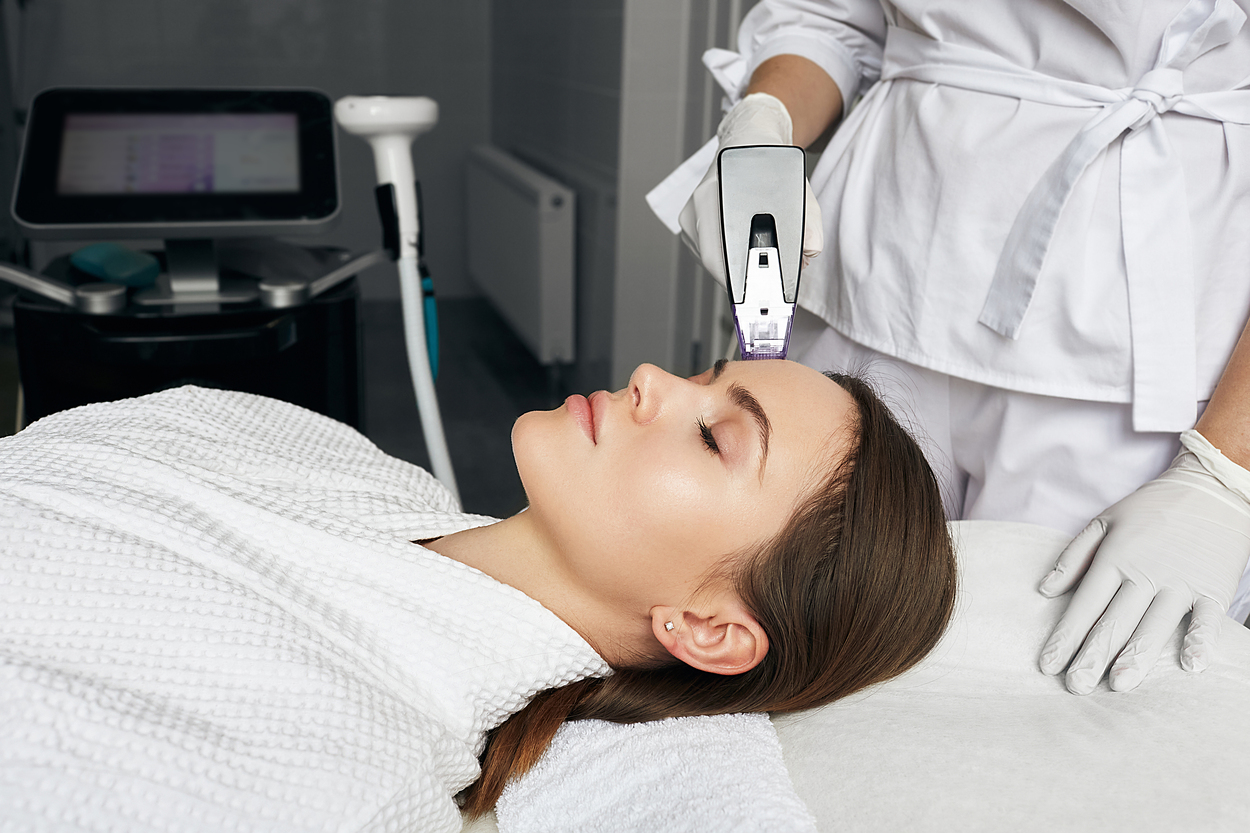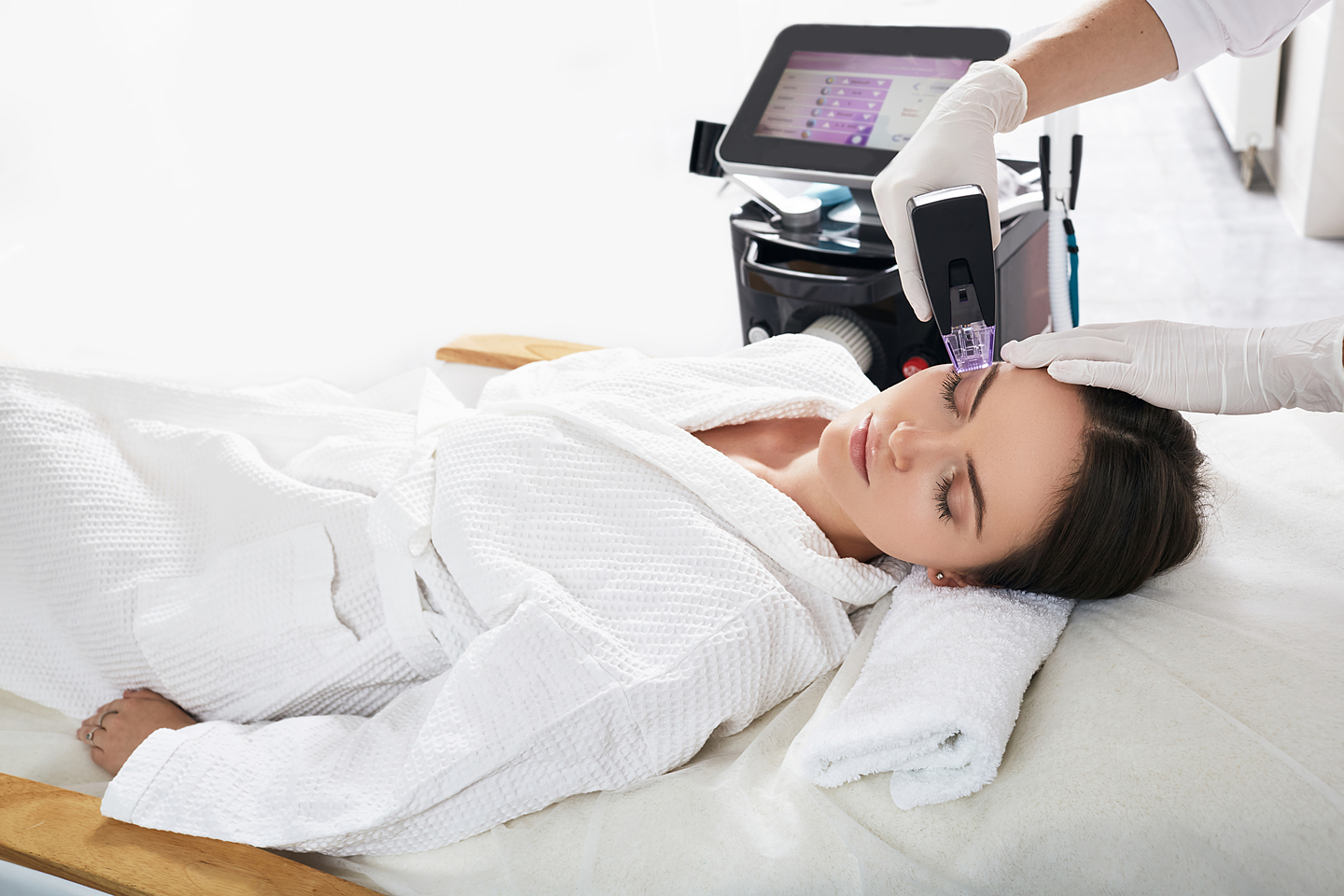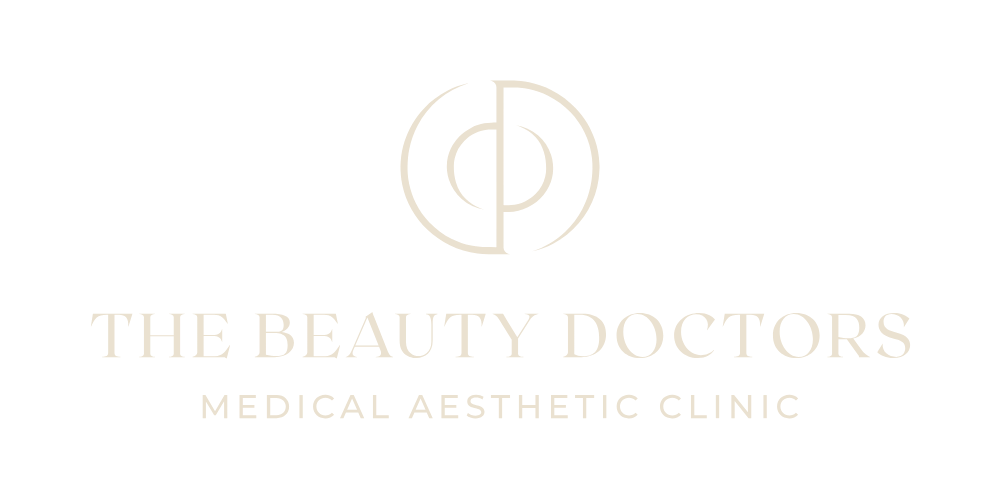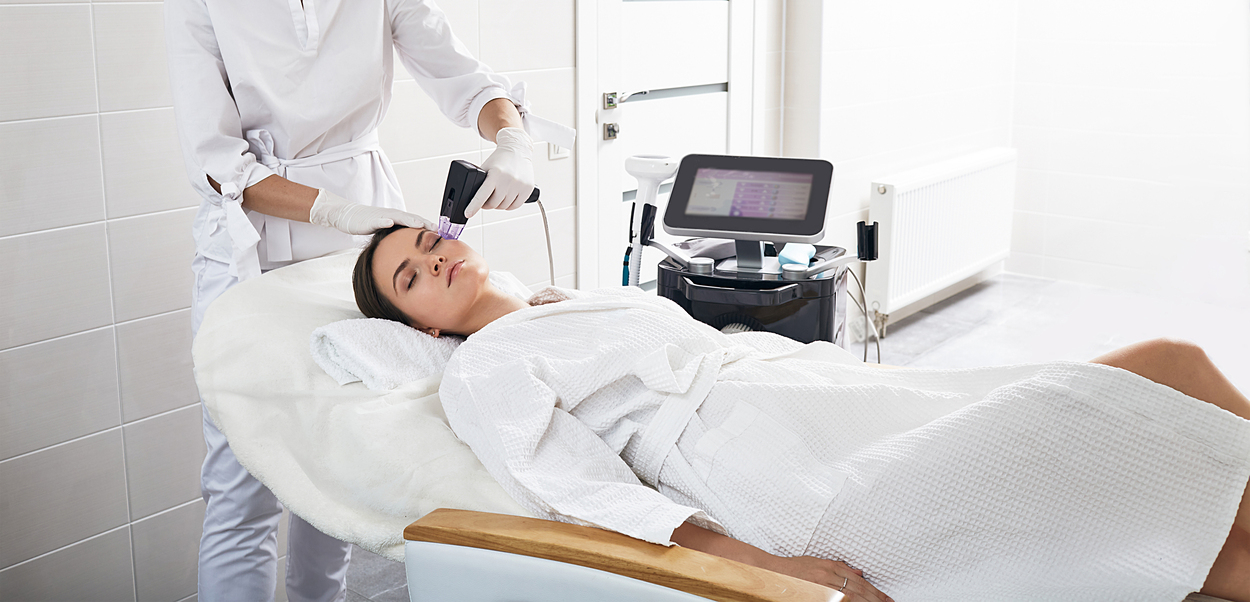Polynucleotide injections have quickly become one of the most talked-about treatments in aesthetic medicine. These injectable skin boosters claim to improve hydration, elasticity, and skin quality. But the question is: are polynucleotides safe?
This guide explores everything you need to know about polynucleotide treatment; how it works, potential side effects, and how to get the best results safely. Whether you’re just curious or actively considering polynucleotides, this article is for you.
What Are Polynucleotide Treatments and How Do They Work?
Polynucleotides are an injectable solution made from purified DNA fragments. These stimulate your skin’s natural regeneration processes. Unlike dermal fillers, they don’t add volume. Instead, they target the quality of the skin itself.
What are polynucleotides?
Polynucleotides are long chains of nucleotides, the building blocks of DNA and RNA. These molecules signal to your fibroblasts to help repair tissue, reduce inflammation, and improve hydration. When injected into the skin, they support collagen production and improve skin elasticity.
Polynucleotides are derived from salmon DNA with a cruelty free approach, which has been shown to be highly biocompatible with human skin.
How are polynucleotides injected into the skin?
During a polynucleotide treatment, the solution is injected into the skin using very fine needles. This allows the injections to be placed precisely into the correct layer of the skin in the treatment area to stimulate fibroblasts and support natural repair. This process improves skin texture and helps reduce signs of ageing.
Book A ConsultationWhere are polynucleotide injections typically used?
These injectable treatments are especially effective in areas where skin appears thin, dull, or damaged:
- Under-eye skin
- Crepey skin on the Cheeks and jawline
- Sun damaged and crepey Neck and décolletage
- Forehead and fine lines
- Skin around the mouth including the difficult to treat upper lip

Are Polynucleotide Injections Safe in Aesthetic Practice?
Let’s address the key question directly: Are polynucleotides safe?
Polynucleotide products used in aesthetic medicine are generally considered safe for most skin types and conditions. They have been used extensively in medicine for other reasons before becoming available for cosmetic use. They are biocompatible, well-tolerated, and involve minimal downtime.
Why are polynucleotides considered safe?
Polynucleotides are naturally derived and biocompatible. They work with your body’s biology and regenerative processes to improve your skin quality rather than changing your facial structure. The treatment boosts collagen and elastin production without adding artificial volume to the skin.
When carried out by a medically trained professional, Polynucleotide treatments are generally considered safe What makes polynucleotides different from dermal fillers?
Unlike dermal fillers, polynucleotide injections don’t add volume. They improve skin hydration and texture by stimulating regeneration. The treatment supports overall skin quality rather than changing shape or structure.
Who should avoid this treatment?
While polynucleotides are safe for most people, those with known allergies to salmon or active skin infections in the treatment area should not proceed. Autoimmune diseases also need to be considered on a case by case basis. During your consultation, a full medical history will be taken to ensure suitability.
Book A ConsultationWhat Are the Effects of Polynucleotide Treatments?
Polynucleotides work by activating the body’s natural ability to heal and rebuild. You’re not filling, you’re restoring. This creates more gradual but long-lasting improvements in skin health.
How do polynucleotides improve skin?
Once injected, the polynucleotides hydrate the skin and improve elasticity. The result is smoother, firmer skin with better tone. They also help reduce redness, improve skin texture, and minimise fine lines over time. They are also very good at regenerating crepey skin that can be problematic under the eye.
How quickly do the effects of polynucleotide treatment appear?
Results vary by individual, but most people begin to see improvements in skin hydration and texture about 21 days after the first treatment. . The skin continues to improve for several weeks as collagen production increases.
Photos often show a reduction in redness, improved skin texture and crepeyness, and more even tone, especially in the under-eye area.
How long do the results last?
With proper aftercare and maintenance, the benefits for skin rejuvenation can last up to six months. For some, especially those with younger skin or early signs of ageing, results can last even longer. At this point a single treatment will help maintain the results.
What Are the Potential Side Effects of Polynucleotide Injections?
Like all injectable treatments, polynucleotide injections carry some risk of mild side effects. These are generally short-lived and manageable with proper care.
What are the most common side effects?
- Redness at the injection site
- Mild swelling that resolves largely within a few days
- Bruising around injection points
- Temporary sensitivity
Side effects may occur more often in delicate areas like the under-eye skin. These typically resolve within a few days.
Are there serious side effects?
Serious side effects are rare. Polynucleotides are injectable skin boosters that are considered safe and effective for most people. There’s a very low risk of allergic reaction, especially when high-quality, purified products are used. They also don’t carry risks of vascular occlusion or nodules which are present with hydronic acid filler products.
How can you reduce the risk of side effects?
- Choose a medically qualified practitioner
- Follow the aftercare advice carefully
- Avoid touching or applying makeup to the area for 24 hours
- Stay hydrated and avoid alcohol before treatment
The risk of side effects is low when injection techniques are performed correctly and polynucleotides used are from trusted brands (Plinest).
What Should You Expect During a Polynucleotide Treatment?
Knowing what happens during the treatment process helps set realistic expectations and ensures a better experience.

What happens during your consultation?
Your consultation will cover:
- Medical history and allergies
- Skin concerns and treatment goals
- Suitability for polynucleotide treatment
- Treatment area selection
This is your chance to ask questions and ensure the treatment is safe for your skin type and condition.
What is the treatment process like?
- The skin is cleansed thoroughly
- We will numb the skin for at least 45 minutes to ensure maximum tolerability.
- Polynucleotides are injected into the skin using fine needles
- The entire session usually lasts an hour but the injection are just 10-15 minutes of that.
You may feel mild pressure or a small sting at each injection. Most clients tolerate it well and return to normal activities shortly after.
There will be a small bump at each injection point and these can persist for 72 hours depending on area treated.
How do you care for your skin after the treatment?
- Avoid touching or massaging the treatment area
- No intense workouts or saunas for 48 hours
- Keep the skin clean and protected with gentle skincare
- Use SPF daily to protect healing skin
This reduces the risk of side effects and supports the best results.
What Makes Polynucleotides a Popular Option in Aesthetic Medicine?
Polynucleotide treatments have gained popularity for their gentle yet effective results as they are versatile at treating multiple areas of the face. They are particularly effective in the tricky under area where there are traditionally fewer option available for treatment.. They offer a unique way to support skin health without volume or drastic changes and are tolerated well by almost everyone with any skin type.
What are the properties of polynucleotides that benefit skin?
Polynucleotides provide:
- Deep skin hydration
- Boost in skin elasticity
- Increase in natural collagen production
- Improvement in fine lines
- Better quality of the skin
The use of polynucleotides improves the overall skin condition and helps reduce early signs of ageing.
Are polynucleotides safe compared to other skin boosters?
Yes. Because polynucleotides are naturally derived, they are generally considered safe, even for sensitive skin. They don’t change facial structure, making them ideal for subtle rejuvenation. They don’t carry the risks of vascular occlusion or nodule formation as hydronic acid filler products do.
Polynucleotides are also considered safe across various skin types, reducing the risk of long-term or serious adverse effects.
Why do practitioners recommend polynucleotide products?
- Minimal downtime
- Consistent, natural-looking results
- Low risk of complications
- Suitable for lots of skin concerns
- A natural regenerative answer to improving skin concerns
They’re a versatile option in aesthetic treatment plans for clients looking for skin quality over volume.
Summary: Are Polynucleotide Injections Safe?
Here’s what you need to remember if you’re considering polynucleotide treatment:
- Polynucleotides are injectable molecules derived from salmon DNA, used in aesthetic medicine to support skin rejuvenation
- They work by stimulating collagen and elastin, improving skin texture, and increasing skin hydration
- The safety of polynucleotides is backed by their biocompatibility and use in medical and aesthetic settings
- Polynucleotides are considered safe, with minimal side effects and a low risk of serious side effects
- They are safe across skin types, offering gentle rejuvenation for ageing skin, fine lines, and skin concerns
- Polynucleotide treatments are extremely safe when performed by trained professionals using correct injection techniques
- During your consultation, your suitability will be assessed, and a tailored treatment process will be discussed
- Polynucleotides are injected into the skin and usually show improvements within one to two weeks
- Results can last months and improve over time, especially with a full cosmetic treatment plan
- Adverse effects such as redness, swelling, or a small bruise may occur, but these usually resolve quickly
- The use of polynucleotides is a strong option for improving skin without adding volume, ideal for the under-eye skin, skin around the mouth, or anywhere skin appears dull
- Polynucleotides are generally well-tolerated and safe and effective when high-quality polynucleotide products are used
- Benefits for skin rejuvenation include improved skin quality, better skin texture, and longer-lasting hydration
- Polynucleotides also help support younger skin and prevent future signs of ageing, reducing the risk of long-term damage
If you’re considering polynucleotide treatments, book a consultation. It’s the best way to understand your skin, your options, and what will truly give you safe, natural results that last.




